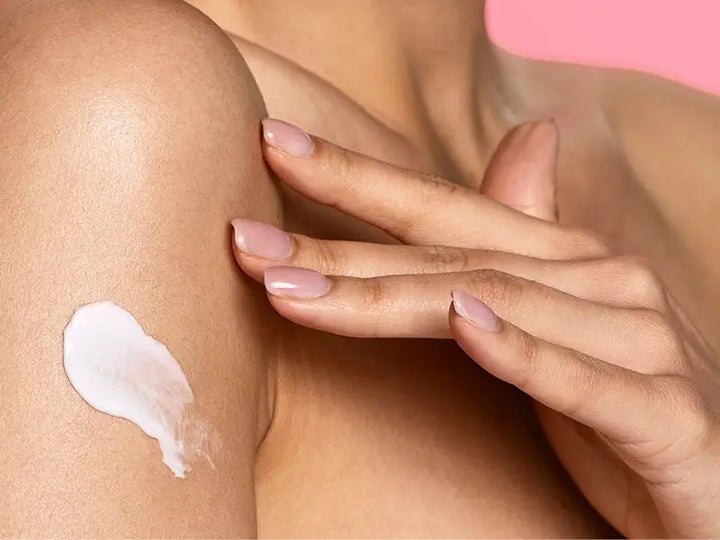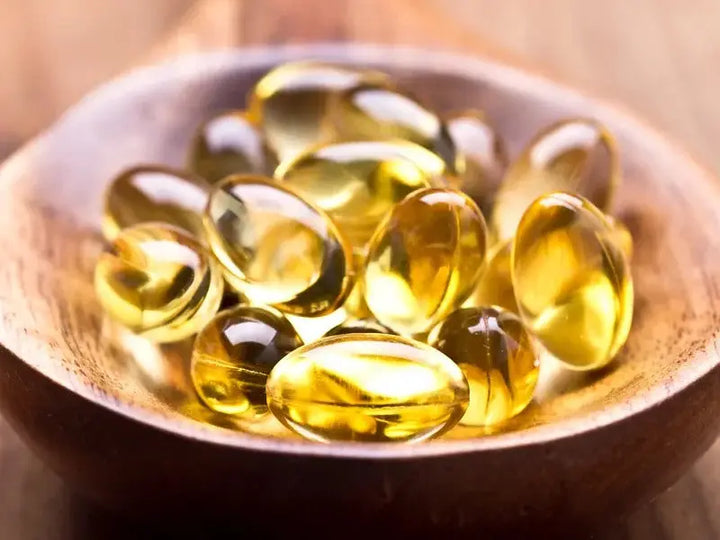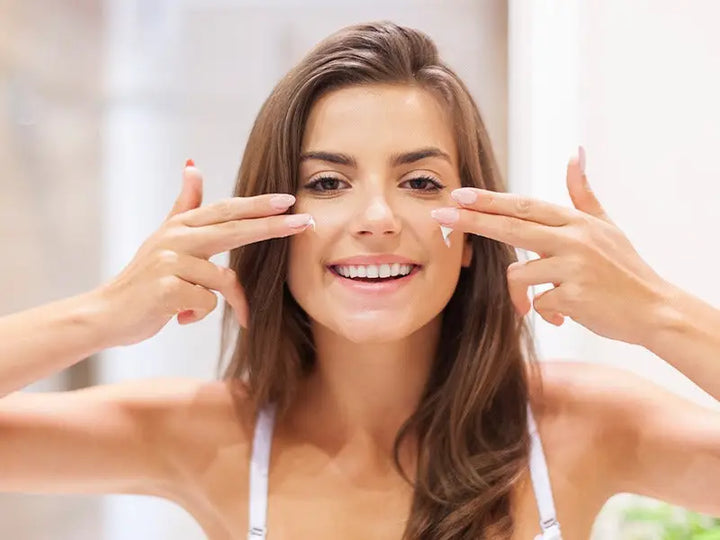There are certain substances used in cosmetics that can bring more harm than benefits, particularly problems that put your health at serious risk. And while some people have been very cautious in choosing the makeup and beauty products they use, others are still in a dilemma in cracking the code that seems to be hidden in product labels.
So, how does one really avoid the dangerous ingredients found in cosmetics and other personal care products?
Simply putting off the use of personal care and beauty products just won’t work for everyone. The good news is you can take a smarter option–and that is to identify the toxic chemicals in cosmetics and avoid them, so you can use makeup and other beauty products minus the risks.
To guide you further, Alyaka, a reputable niche perfume and organic beauty products retailer in the UK shares an infographic that puts in detail the by a lot of companies today.

COSMETICS SAFETY BY THE NUMBERS
- 60% of what you put on your skin is absorbed by the body.
- Beauty products with “made with organic” mark on their labels contain 70% certified-organic ingredients, which opens a 30% chance for toxins to be used.
- According to U.S. researchers, one in eight of the 82,000 ingredients used in makeup and personal care products are industrial chemicals that pose health hazards.
- There are 10,500 industrial chemicals used as cosmetic ingredients including carcinogens, pesticides, reproductive toxins, endocrine disruptors, plasticisers, degreasers and surfactants.
- FDA’s Cosmetics Ingredient Review panel has rejected only 11 ingredients as unsafe in cosmetics (CIR 2012), while the European Union has banned hundreds of chemicals in cosmetics (European Commission 2012).
HEALTH ISSUES ASSOCIATED WITH TOXIC CHEMICALS IN MAKEUP AND COSMETICS
- Skin Allergies
- Cancer
- Infertility
- Reproductive Problems
- Learning Disabilities
- Birth Defects
- Hormonal Problems
- Weakened Immunity
12 TOXIC CHEMICALS IN COSMETICS TO AVOID
#1. PARABENS
Other Names: methylparaben, butylparaben, propylparaben, isobutylparaben, ethylparaben
Commonly found in 75-90% of makeup, moisturisers, hair care products, and fragrances
EFFECTS:
- Causes endocrine dysfunction
- Interferes with male reproductive functions
- Can lead to rapid skin ageing and DNA damage
#2. DEA, COCAMIDE DEA AND LAURAMIDE DEA
Often found in creamy and foaming products such as moisturisers and shampoos.
EFFECTS:
- Can form cancer-causing nitrosamines
- Mild to moderate skin and eye irritation
- May cause liver cancer and precancerous changes in skin and thyroid when taken in high dosage
#3. TRICLOSAN
Used in personal care products with antibacterial properties, including soaps, hand sanitizers, deodorants, toothpaste and mouthwash.
EFFECTS:
- Causes endocrine disruption once it passes through skin
- Skin and eye irritation
- Weakens cardiac function
- Impairs immune system
- May cause birth defects
#4. DIBUTYL PHTHALATE OR DBP
Commonly found in nail products and some hair sprays.
EFFECTS:
- Developmental defects
- Reproductive changes / Impair fertility
- May interfere with hormone function
- Capable of enhancing other chemicals to cause genetic mutation
#5. BHA (BUTYLATED HYDROXYANISOLE) AND BHT (BUTYLATED HYDROXYTOLUENE)
Often present in moisturiser, makeup, lipstick, and other cosmetics.
EFFECTS:
- Can cause cancer
- Interferes with hormone function
- Allergic reactions
#6. COAL TAR DYES
Comes in the form of P-Phenylenediamine which is used in hair dyes and colours identified as “C.I.” and usually followed by 5 numbers in other products.
EFFECTS:
- Has cancer-causing capabilities
- May contain heavy metals that are toxic to the brain
- Increases the risk of developing cancer of the lymph system
#7. FORMALDEHYDE-RELEASING PRESERVATIVES
Usually found in hair products, moisturisers, nail hardeners and a wide range of cosmetics.
EFFECTS:
- Can cause cancer
- Can cause eye and skin irritation
- May trigger allergic reactions
#8. PEGS
Commonly used in hair products, conditioners, moisturisers, and deodorants.
EFFECTS:
- Can cause irritation and systemic toxicity when used in broken skin
- Harmful for the nervous system
- Classified as a developmental toxicant and may interfere with human development
#9. ALUMINUM
Ingredient used in deodorant and antiperspirant products. Also found in vaccinations, feminine hygiene products, antacids, cow and soy milk, drinking water.
EFFECTS:
- Linked to Alzheimer’s and brain disorders
- Associated in breast cancer
- Temporary plugs the sweat duct that stops normal flow of sweat, forcing toxins to flow back into the bloodstream
- May cause microvascular stroke
#10. PETROLATUM
Commonly used in hair products, lip balm/lipstick, skin care products.
EFFECTS :
- May be contaminated with impurities that can lead to cancer.
- Skin contact for extended periods of time is associated with cancer
#11. MINERAL OIL
Often used in body care products such as baby oil, lotions, soap and other cosmetics.
EFFECTS :
- Clogs skin pores resulting to acne and other disorders
- Prevents toxin elimination through the skin
- Premature aging due to poor skin function and cell development
- May contain PAHs, which can cause cancer
#12. CHEMICAL SUNSCREENS
Other Names: Retinyl Palmitate, Titanium Dioxide, Oxybenzone and Octyl Methoxycinnamate
Commonly used in sunscreens/sun block or beauty products that provide sun protection.
EFFECTS :
- Can cause inflammation
- Allergic reactions
- DNA alterations
- May cause cancer
Beauty products safety should be a primary concern when using makeup and other personal care products. It’s time to clean up your makeup stash and start using beauty products that can offer the results you want without the toxic side effects.



















